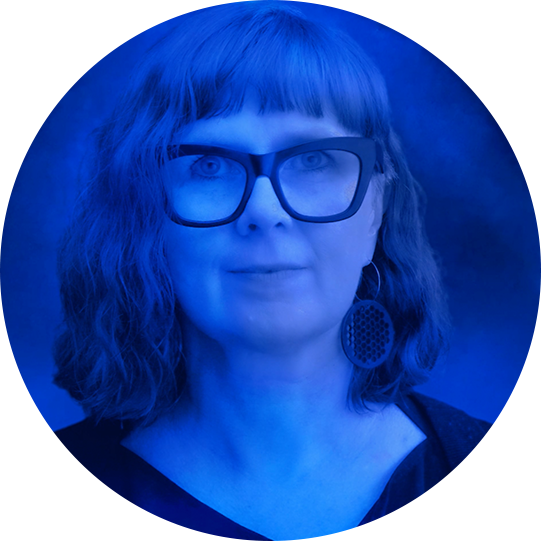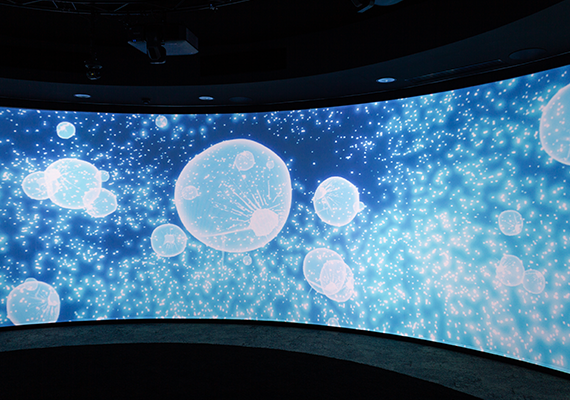
My research draws attention to the rich and vibrant human, non-human and more than human entanglements of public space that can be amplified by temporary public art practice.

My research draws attention to the rich and vibrant human, non-human and more than human entanglements of public space that can be amplified by temporary public art practice.
Fiona Hillary is drawing on her career as an artist, exploring how immersive art in public spaces can engage audiences with urgent issues such as climate change.
We sat down with Fiona to talk about her PhD journey.
Why did you choose to study a PhD at Deakin?
I chose to study at Deakin because it’s School of Communication and Creative Arts offered the supervisors with the knowledge, skills and expertise I was searching for. As part of my PhD at Deakin, Public Art Commission, a research initiative focused on the curation, scholarship, delivery and analysis of commissioned arts projects, became a central focus of my research idea.
What is your PhD research project about and how is it helping you make an impact on society?
My research draws attention to the rich and vibrant human, non-human and more than human entanglements of public space that can be amplified by temporary public art practice.
As part of my PhD research, I have created and exhibited a 360° sound and film experience called ‘Reverberating Futures’ inspired by the unprecedented occurrences of algal drift currently occurring in the southern hemisphere. ‘Reverberating Futures’ is presented as a meditation on human and non-human entanglements in climate change, paying homage to bioluminescent algal species which appear as red tides during the day and glow blue in the evening’s crashing waves.
Through this work, and more broadly my PhD research, I am contributing to a zeitgeist of climate change artists, activists and thinkers, creating experiential works that engage audiences creatively with issues associated with climate change.

'Reverberating Futures' - Photo: Dr Kirsten Lyttle
What have you achieved that you never thought possible before beginning your PhD?
I am so thrilled to be able to present ‘Reverberating Futures’ a 360-degree film and sound work. This work can be experienced at our new state-of-the art learning precinct Nyaal, on Deakin’s Waurn Ponds campus, which brings high quality images to life through immersive 360-degree visual simulations.
It has given me insight and understanding into the immersive qualities of virtual reality in a way I never could have imagined!
I also had the opportunity to gain teaching at an international, interdisciplinary Post Human Summer School with preeminent philosopher Professor Rosi Braidotti at Utrecht University. It was a highly inspiring and motivating experience.
How has Deakin supported you to achieve your goals?
Deakin has given me the support of world-leading supervisors, state-of-the-art immersive learning precincts like Nyaal and a range of industry connections.
The support of Nyaal has been amazing, it has pushed me to understand what creative practice can be achieved in this incredible new facility. I was able to make industry connections with Melbourne Water and Fika Entertainment which has enabled me to make the work I want to create.
Through fieldwork funding, I was lucky enough to travel to the United States to present at an international conference and undertake a short residency with Scripps Oceanography. I was also able to work with Emeritus Professor Gustaaf Hallegraeff, a specialist in algal blooms, at the University of Tasmania.
What are your future career ambitions? How has your PhD helped you realise these?
As for future career ambitions, I hope to leverage the work I made through my PhD and refocus my career through an art, science and technology lens. I am also inspired to
develop further work with Nyaal, to contribute to local and international conversations about art-science-technology and the public realm.
Re-imagine your career, connect with industry and make your impact alongside world-leading researchers in one of Australia’s leading research communities.
For more information about any of our researchers please contact Deakin Research.